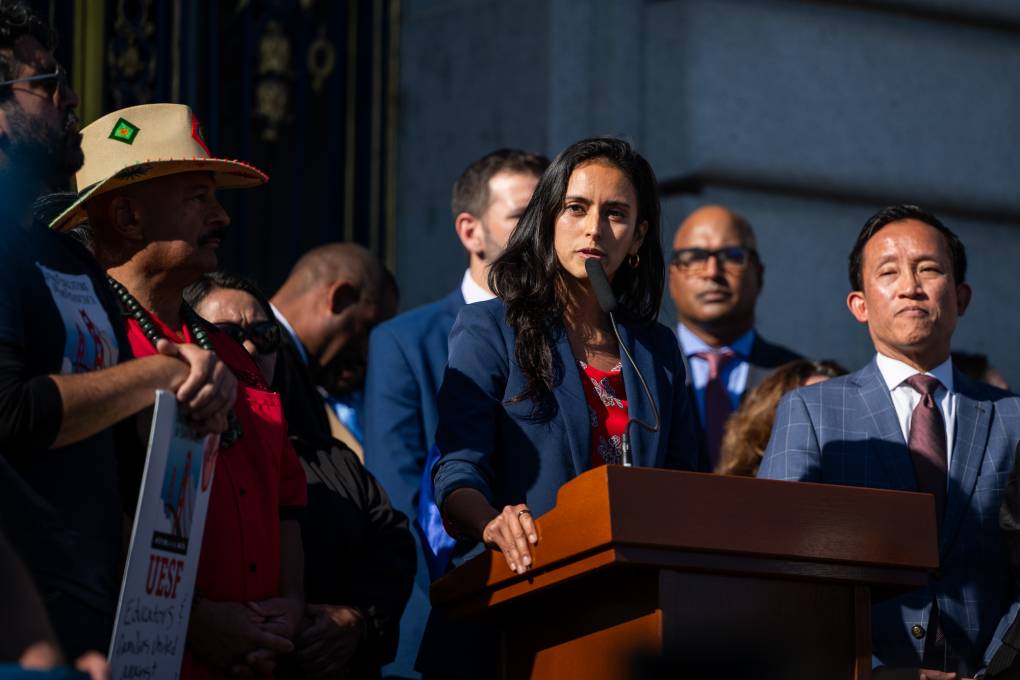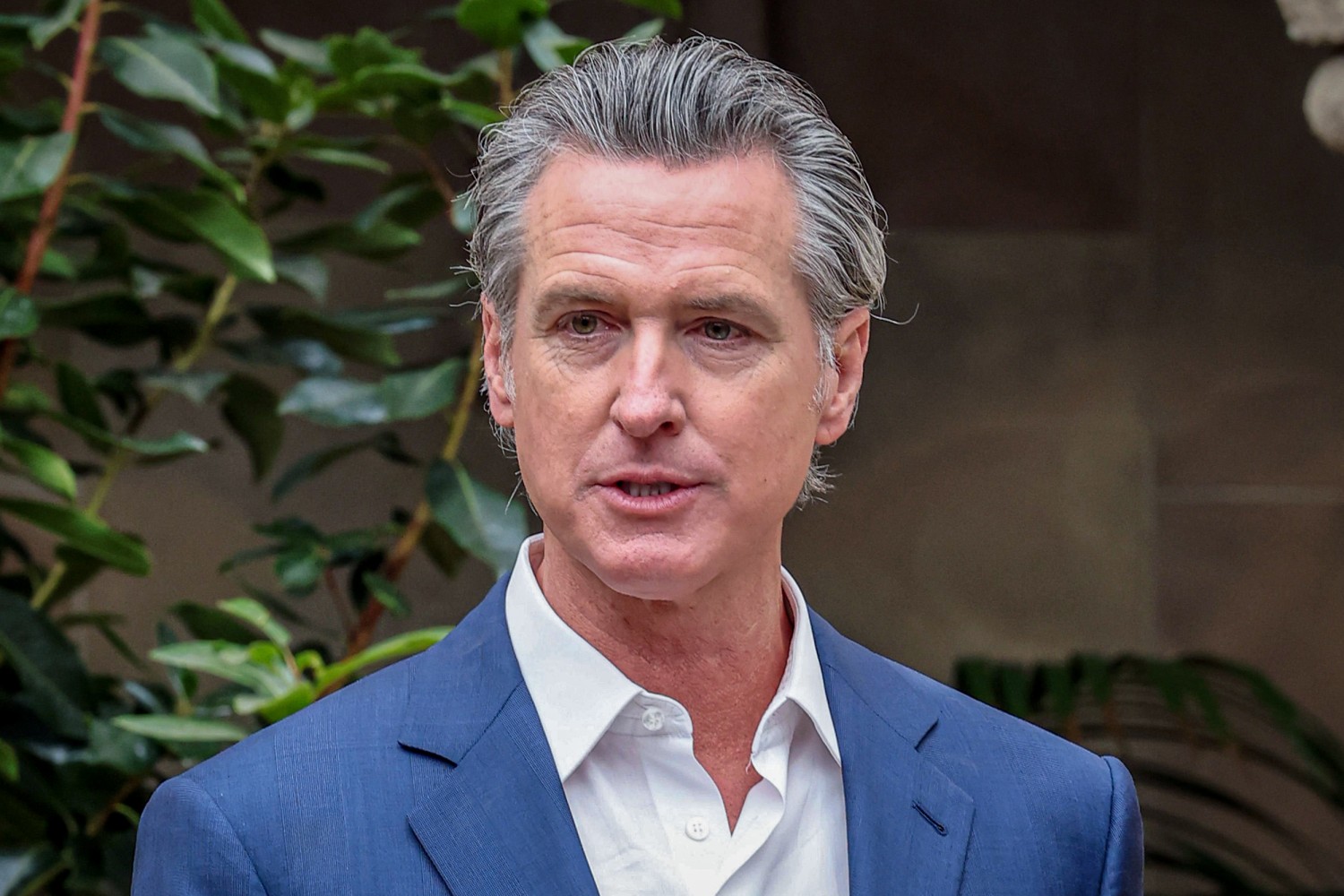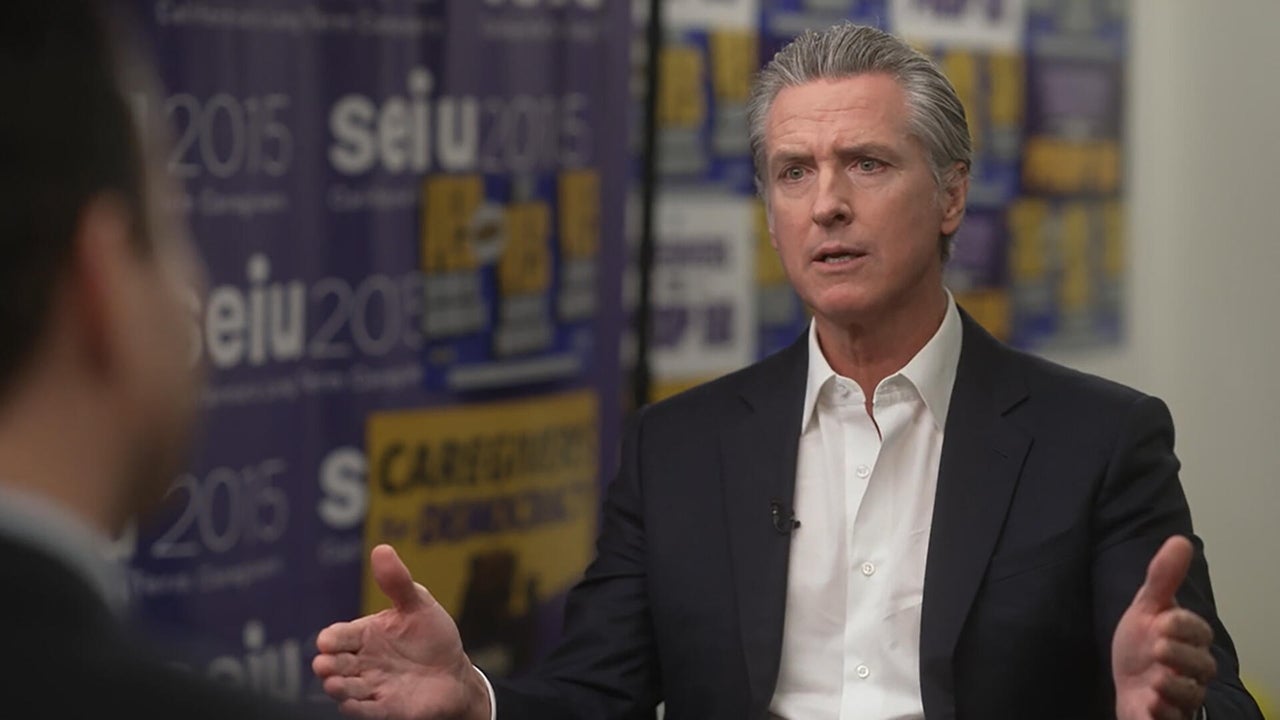
Tension between Washington and California has exploded into one of the most dramatic constitutional showdowns in years after Deputy Attorney General Todd Blanche issued a sweeping federal warning to state leaders.
In a sharply worded letter addressed to Governor Gavin Newsom, Attorney General Rob Bonta, and members of Congress including Representative Nancy Pelosi, Blanche declared that any attempt by California authorities to obstruct, arrest, or impede federal immigration officers would be “illegal and futile.”
The message was clear and unmistakable — the federal government will not tolerate state interference in immigration operations, no matter how politically motivated.
The warning arrived after several California lawmakers, including Pelosi and a bloc of progressive mayors from Los Angeles, Oakland, and San Francisco, publicly threatened to “take action” against federal agents conducting immigration raids in sanctuary cities.
Their comments came after reports that federal officers had intensified detentions across California under a new nationwide directive aimed at deporting individuals with criminal records.
Critics accused the Biden administration of allowing the Justice Department to “weaponize” immigration enforcement, while supporters said the raids were necessary to restore order at the border.
Todd Blanche’s letter — terse, forceful, and unmistakably confrontational — marked a turning point in the escalating feud. “Federal immigration enforcement is not optional,” the letter stated, according to senior Justice Department officials familiar with its contents.
“Any effort by state or local authorities to obstruct federal officers or interfere with the execution of lawful duties will be considered a direct violation of federal law and will result in immediate legal consequences.”

The letter went on to warn that state officials could face prosecution if they “knowingly and intentionally” interfered with Immigration and Customs Enforcement (ICE) operations.
California officials reacted swiftly and defiantly. Governor Newsom called the letter “an outrageous abuse of federal power,” promising that the state would not be “intimidated by threats or political posturing.”
Pelosi, long a vocal defender of sanctuary policies, told reporters in San Francisco that the Justice Department was “playing politics with people’s lives” and accused Blanche of “acting like an enforcer for an administration that has lost its moral compass.”
Her words were met with cheers from immigrant-rights advocates gathered outside City Hall, where activists held signs reading “California Welcomes Immigrants” and “Feds Go Home.”
But behind the rhetoric lies a deeper constitutional battle that has been simmering for years. The conflict pits the federal government’s authority over immigration — traditionally considered absolute — against California’s insistence that it has the right to protect its residents from what it views as discriminatory or excessive enforcement.
Since the passage of California’s “sanctuary state” law in 2017, local law enforcement agencies have been restricted from cooperating with federal immigration authorities, a policy that has repeatedly drawn the ire of Washington. Blanche’s warning signals that the Justice Department may now be preparing to challenge those restrictions head-on.
Inside the White House, aides described the letter as a necessary escalation to preserve federal authority. A senior administration official, speaking anonymously, said the Department of Justice was “done tolerating states picking and choosing which federal laws to follow.”
The official added, “If California wants to resist, they can do so in court — but the law is not on their side.” The official noted that Blanche’s directive was approved by Attorney General Merrick Garland and was coordinated with the Department of Homeland Security, underscoring the seriousness of the federal position.

Meanwhile, in California, the political response has split sharply along party lines. Progressive lawmakers have rallied behind Pelosi, framing the dispute as a moral fight over human rights.
“We will not stand by while families are torn apart in our neighborhoods,” said State Senator Maria Gonzalez, a leading voice for immigrant protection legislation.
“If federal agents step outside the law, they should be held accountable like anyone else.” Conservatives, however, have warned that the state is playing a dangerous game.
Republican Assemblyman Tom Lackey said, “Pelosi and Newsom are encouraging civil disobedience against the federal government. That’s not resistance — that’s chaos.”
The issue has already begun to ripple through California’s law enforcement community. Several sheriffs’ departments, particularly in rural counties, have refused to enforce the state’s sanctuary restrictions in the past, arguing that cooperation with ICE helps maintain public safety.
But urban police chiefs, wary of public backlash, have distanced themselves from federal operations. The Los Angeles Police Department issued a statement reiterating that it “does not participate in civil immigration enforcement,” while San Francisco’s sheriff said his office “will not detain individuals solely for immigration purposes.”
Legal analysts say this uneven enforcement landscape could become the battleground for the next phase of the confrontation.

At the heart of the dispute is the question of sovereignty — who ultimately has the power to enforce immigration law within U.S. borders. The Supreme Court has historically affirmed federal supremacy in immigration matters, but it has also recognized states’ rights to set local policing priorities.
That ambiguity has created a gray area that politicians on both sides have exploited. Blanche’s letter seeks to close that gap by declaring, in no uncertain terms, that the federal government will not recognize any state-level attempts to block immigration enforcement.
“No local ordinance, resolution, or directive may lawfully impede the operations of federal officers,” the letter warned, invoking the Supremacy Clause of the U.S. Constitution.
As protests erupted across California in response to the warning, legal teams on both sides began preparing for what could become a landmark case. Civil rights organizations, including the ACLU and several immigrant advocacy groups, announced plans to challenge the Justice Department in federal court.
“We will not allow this administration to criminalize compassion,” said ACLU attorney Priya Narang. “California has every right to protect its residents from unlawful detentions and racial profiling.”
In contrast, supporters of the Justice Department’s stance have praised Blanche for “restoring order” and accused California of grandstanding for political gain.
“Federal law is clear,” said conservative legal scholar Victor Hall. “States can’t run their own immigration systems, period. This is about enforcing the law, not defying it.”
Inside immigrant communities, fear and confusion have spread quickly. Reports of increased federal patrols near Los Angeles and San Diego have fueled anxiety among undocumented families.

Community centers in the Central Valley have seen a surge in calls from residents seeking legal advice or emergency plans in case of deportation. Local pastors have opened their churches as temporary sanctuaries, reviving a tradition from the 1980s Central American refugee crisis.
“People are scared,” said Pastor Miguel Ortega of Fresno. “They see what’s happening on television, and they don’t know if tomorrow they’ll still be here.”
Political strategists in both parties say the clash could reshape the 2026 midterm elections. Democrats are using the confrontation to energize their base, portraying it as a fight for dignity and human rights.
Republicans, meanwhile, see it as proof that the left has lost control of public order. “This is a defining moment,” said GOP strategist Karen Hollis. “If the federal government blinks, it sends the message that states can nullify federal law whenever they feel like it.”
The debate has already spilled onto social media, where hashtags like #HandsOffCalifornia and #LawAndOrderNow are trending in parallel universes of outrage and defiance.
Back in Washington, Blanche has remained silent since the letter’s release, declining interviews and avoiding public appearances. Those close to him describe the Deputy Attorney General as meticulous and unflinching — a prosecutor who believes deeply in institutional integrity.
His allies within the Justice Department say he views the California crisis as a test case for the rule of law itself. “He’s not looking for headlines,” said one DOJ colleague. “He’s drawing a line. Either the law means something, or it doesn’t.”
In California, Pelosi’s office has confirmed that she and other state leaders are drafting a joint response to the Justice Department’s letter. The statement, expected later this week, is said to reaffirm California’s commitment to protecting immigrant families and to accuse the federal government of using fear as a political weapon.

Behind the scenes, aides say Pelosi has been urging Democratic governors in other states to prepare for similar clashes. “This isn’t just about California,” one aide said. “This is about whether any state can stand up for its people without being bullied by Washington.”
As night falls over Sacramento, the standoff remains unresolved. Federal agents continue their operations. Protesters march outside government buildings.
Lawyers draft injunctions. Politicians trade insults. The air feels heavy with the weight of history repeating itself — a collision of ideals that echoes past battles over civil rights, states’ rights, and the limits of federal power. What began as a letter has now become a test of the nation’s constitutional fabric.
Whether California chooses defiance or compliance, and whether Washington enforces or compromises, the outcome will reverberate far beyond the borders of the Golden State.
It will determine not only how immigration law is enforced but also who holds the ultimate authority in a divided America. For now, one truth stands above all others — neither side appears ready to back down, and the fight for control has only just begun.